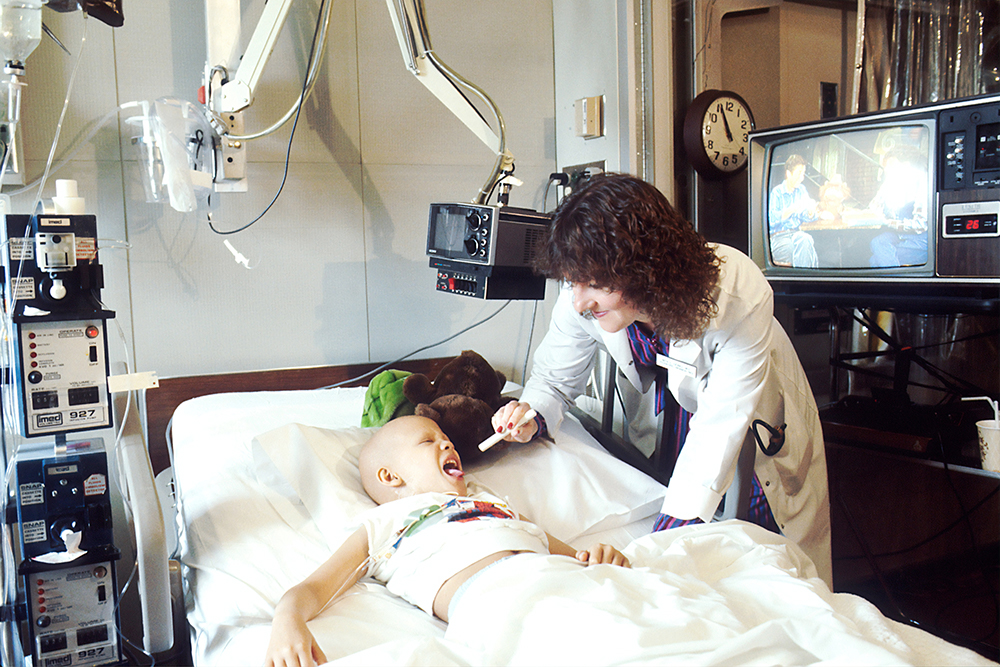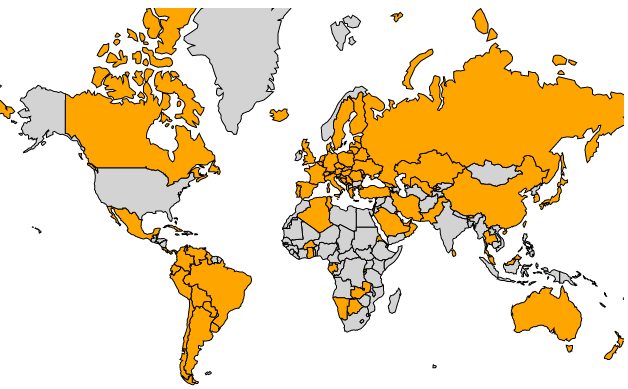This past Wednesday, I experienced a parenting milestone that I’ve been dreading ever since I became pregnant: my child’s first emergency room visit.
All things considered, it could have been a lot worse. My son came out of the hospital the same night he went in (well, technically the next morning, at 1 a.m.). He didn’t have to be admitted, his life wasn’t at risk, there were no broken bones. Every single staff member we encountered at Le Bonheur Children’s Hospital treated us with compassion and care. But I’m still left shaken at the thought that he is old enough now to most likely remember the whole thing. After all, some of my earliest memories are from the emergency room.
My first tryst with the emergency room occurred after I tripped over a crack in the sidewalk outside of Snowden Elementary and went face-first down some concrete stairs. Every childhood picture from the immediate years after that little tumble caused my older brother to remark, “You look like a hockey player.” He’s not wrong.
But the trip to the hospital that keeps coming to mind since last Wednesday night happened later that same year. Like my son, I was four years old. Also like him, I went because of an ear infection that had morphed into a more serious issue. The similarities end there. My son’s ear infection was coupled with a virus. Mine caused my eardrum to rupture. “Explode” is the word the doctors used, and that always stuck with me, probably because of the dramatic flair.
What I remember from that night is that my dad didn’t take me to the hospital right away. Four-year-old me begged to go as we walked together through the house, my dad holding me and humming, desperate to alleviate my pain, but hesitant to make the 30-minute drive to the emergency room in the middle of the night. It was about 4 a.m. when he finally called my grandmother to accompany us. He was new to the area and needed directions (this was before the internet, MapQuest, or GPS).
Growing up, I never truly understood my dad’s reluctance until I became a parent myself. The sheer logistical nightmare of taking a child even to their own pediatrician is enough to make you want to be certain. I can’t tell you how many times my son and I have gone to his doctor’s office only to find out that he essentially had a cold. It’s hard to know what to do when your kid is too young to articulate what’s wrong.
There’s another reason I can now sympathize with my dad’s plight. Every time I’ve been to the emergency room as an adult, it has been preceded by a drawn-out attempt to avoid the ordeal at all costs. At all costs. Every time, that’s what makes me stall, despite the pain (I’ve been to ER three times for kidney stones. The pain is no joke.). I know friends and family members who have done the same. The cost of an emergency room visit, even with health insurance, has made me delay even when in the worst pain of my life. My child’s trip to Le Bonheur was the first time I didn’t hesitate when faced with going to the hospital.
While I will be forever grateful for the wonderful care my son received from every doctor and nurse involved in his stay, the reality has been brought home to me, for the millionth time since becoming a mother: Good health is a privilege. The stark reality is that money is deeply entwined with my son’s, and every child’s, healthcare.
He needed blood work, a urinalysis, and an IV. I am highly aware that for many parents, these things would be beyond their budgetary capabilities. Heck, if it weren’t for my ex-husband’s great insurance, they all would have been beyond my budgetary capabilities. It is almost impossible to articulate the mixed feelings of deep relief that my son was provided for and the unrelenting guilt that so many children are left by the wayside.
It is almost impossible to articulate the deep confusion and crushing sadness that so many people can write off universal healthcare where children are involved. Even without my own personal experiences weighing medical cost vs. medical need, I have never understood this sort of thinking. I don’t think I ever will.
Coco June is a Memphian, mother, and the Flyer’s theater columnist.

